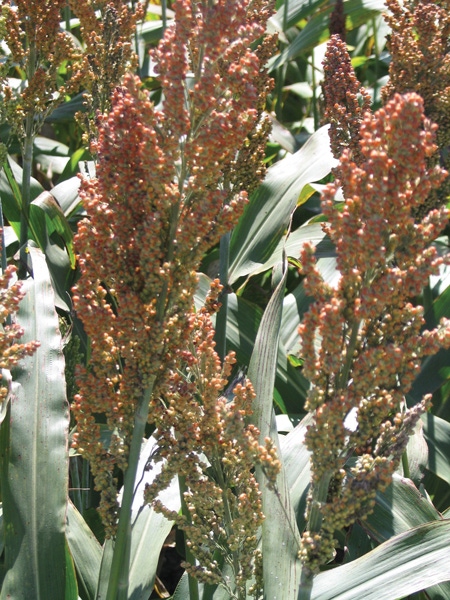December 14, 2010

Last week I had the opportunity to attend the Annual Texas Plant Protection Conference in College Station in which a number of excellent presentations were made regarding emerging Agricultural technologies that will help make farmers and ranchers even better at what they do, producing the safest, and cheapest food supply in the world. I will highlight only a few of the sessions that I attended that will have local implications in this column.
Herbicide resistant sorghum will present new opportunities to mange weeds in the future. Thanks to a project started back in 2003 at Kansas State and Purdue University, we are getting very close to having commercial grain sorghum that has tolerance to ALS - and ACC inhibiting herbicides.
This technology will allow for more effective postemergence grass control for sorghum producers and improve crop rotation and replant options. Tests conducted throughout the state have proven the value of this new system on a number of weed species. Moreover, this system could also be an effective weed resistance management tool when sorghum is part of a rotation where glyphosate resistance weeds are a problem. Most all sorghum seed companies have licensed this technology, and introduction into the marketplace will have a far-reaching implications.
Resistance discussed
Herbicide resistant weeds was a major topic of discussion, as Stanley Culpepper, Extension Agronomist from Tifton, Georgia, shared with the group the major problems that are being faced with weed resistance to herbicides like glyphosate in Georgia. Texas has not been immune to weed resistance issues either. Resistance to the sulfonylurea and triazine herbicides has been documented in croplands and utility rights of way. These issues have for the most part been managed by using alternative site-of-action herbicides and cultural practices. However, none of these issues equals the potential threat of glyphosate resistant weed species, now appearing on Texas crop lands. Common waterhemp has been the main focus of this problem, as resistance has been documented in one southeast Texas county and is highly suspected in four others, all cotton producing areas. Immediate resistance management must be employed by planting alternative herbicide resistant crops and the application of soil active herbicides prior to or at planting.
DuPont Crop Protection has a new herbicide, Aminocyclopyrachlor, that offers control of broadleaf weeds and brush in pasture and rangeland. This product has been tested since 2005 and has been shown to control annual and perennial weeds, including western ragweed, woolly croton, annual broomweed, and broom snakeweed, as well as numerous brush species, including honey mesquite and huisache. Control of these species has been achieved with both broadcast and individual plant treatments.
King Ranch (KR) bluestem, a grass that now dominates many roadsides and is becoming a problem in improved pastures and rangeland has up to this point has not had a selective herbicide available to help manage this very invasive plant. Dr. Larry Redmon, Extension Forage Specialist established a trial in Central Texas examining the efficacy of Pastora herbicide on KR bluestem. So far, it appears that a single application in the summer is ineffective in suppression of KR bluestem; however, when a follow-up application was made six weeks later, suppression has been noted. Additional evaluation of these treatments is needed before recommendations can be made.
More information about many of these new technologies will be shared at a local Crop Symposium on January 21 at the AgriLife Research and Extension Center in Corpus Christi.
You May Also Like




